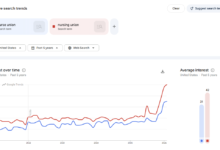Is Mandatory Nurse Overtime Ethical? Examining Laws & Policies

Overworked, burned out, stressed out, and anxious are painful emotions and self-descriptors that almost every nurse has experienced at one time or another and attributed mainly to staffing issues directly correlated to the nursing shortage crisis. Worldwide awareness of nursing shortages has been a topic for some time, harking back to even before 2020 when the year was supposed to be the “Year of the Nurse and the Midwife” yet instead ended up being the year the pandemic roared onto the world stage, the intended focus to grow nursing school programs and funding to recruit higher numbers to the industry was instead hijacked by the coronavirus as government and media focus pivoted to emergency crisis response and damage control. This, lamentably, pushed already overworked medical professionals into work situations that were often uncomfortable and sometimes unethical and unsafe. Nurse overtime has become a topic of increasing concern along with industry acknowledgment of the nursing shortage. Yet, it is hardly a topic with easy solutions, nor is it without conflict.
Is There a Law About Nurse Overtime?
The Fair Labor Standards Act (FLSA) dictates clearly: “overtime pay to be at least one and one-half times an employee’s regular pay rate after 40 hours of work in a workweek. Some exceptions apply under special circumstances to police and firefighters and to employees of hospitals and nursing homes.”
‘Some states have overtime laws. In cases where an employee is subject to both the state and federal overtime laws, the employee is entitled to overtime according to the higher standard (i.e., the standard that will provide the higher overtime pay).”
The nursing shortage and the pandemic have been catalysts for many facilities nationwide to enact policies for mandatory overtime of their staff nurses to counter staffing issues and maintain nurse-to-patient ratios. Alternatively, several states have laws that go so far as to prohibit these types of policies.
Here’s a rundown of the states that restrict mandatory overtime for nurses:
- Alaska, Illinois, Maine, Maryland, Massachusetts, Minnesota, New Hampshire, New Jersey, New York, Oregon, Pennsylvania, Rhode Island, Texas, Washington, and West Virginia all have laws in place with language identifying mandatory overtime as illegal. Each has restrictions on maximum shift duration, rest periods, and exceptions.
- Alternatively, in Connecticut, mandatory overtime for nurses is expressly legal.
- California law states that mandatory overtime is prohibited, while Missouri prohibits mandatory overtime specifically for LPNs.
Is Mandatory Overtime for Nurses Ethical?
With only 18 states taking a clear stand on mandatory overtime and only one firmly supporting it, the industry has to grapple with the issue on a facility by facility basis in the remaining ‘silent’ states. This begs the question; is it ethical to mandate overtime for nurses?
Hospital and facility leaders should be asking themselves about the ethics of requiring overtime for all their nursing staff, including registered nurses (RNs), licensed practical nurses (LPNs), and nursing assistants (CNAs). While it can serve as a stop-gap measure to keep ratios in compliance, overworked nurses simply filling spaces to meet staffing requirements will not provide the same level of care as rested nurses. Outcomes and patient care can suffer. As a result, they lead to increased nurse burnout and retention issues, further compounding the problem. Suppose facilities are committed to using mandatory overtime policies. In that case, they must at the very least also include qualifiers that ensure limits are in place to provide at least some protection for nurses. Unfortunately, not all care about nurse protection.
U.S. Department of Labor V. Golden Valley
The Dept. of Labor recently filed a lawsuit against home healthcare provider chain Golden Valley. They allegedly not only failed to pay their workers’ earned overtime pay but furthermore altered financial records in an attempt to mask the failure. According to the press release, Golden Valley owes more than $75,000 in overtime back wages to 25 workers.
What is Nurse Overtime Pay?
Overtime pay for nurses will vary based on credentials and their hourly wage. According to the U.S. Bureau of Labor and Statistics (BLS), the median annual RN salary in 2021 was $77,600, $37.31 per hour, and $48,070 for LPNs, or $23.11 hourly. Overtime pay is one and a half times the average hourly rate for each hour over 40 in a week.
How Much do Nursa Nurses Earn?
Nurses who pick up PRN shifts through the Nursa app are independent contractors. By the very nature of PRN work, they often can earn higher hourly rates for shifts worked than the regular staff hourly rate and typically pick up said shifts at multiple different facilities. This strongly motivates RNs, LPNs, CNAs, and other allied healthcare workers to switch from routine staff jobs to the gig marketplace. It is imperative for PRN nurses to be mindful of their physical and emotional limits for their hours worked during a week. Nursa does not have a minimum requirement for the number of shifts worked, which allows clinicians to take care of themselves on their journey to earning more.






